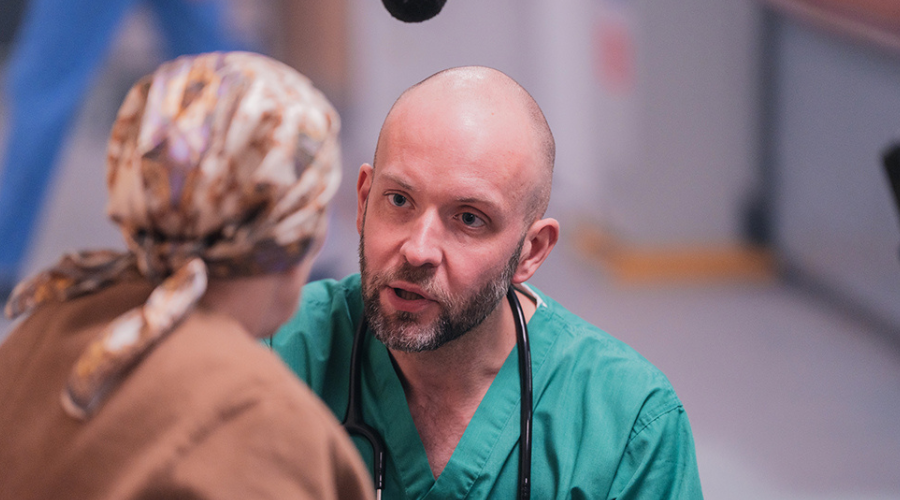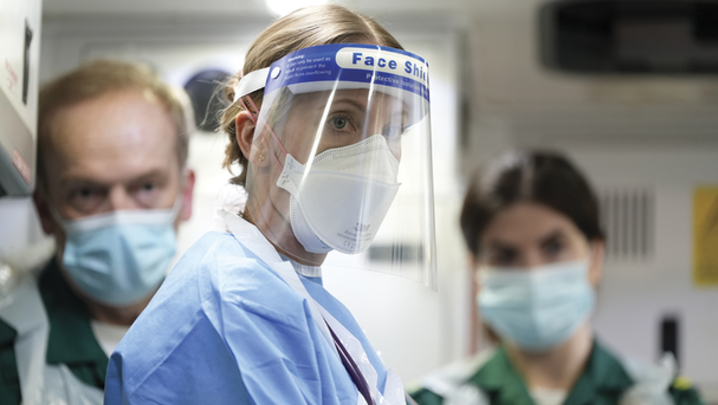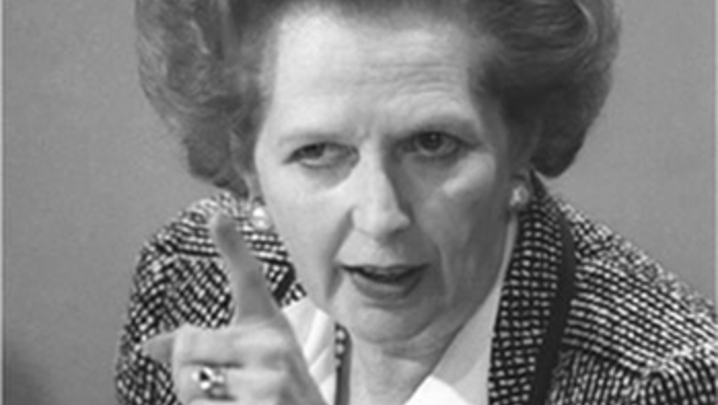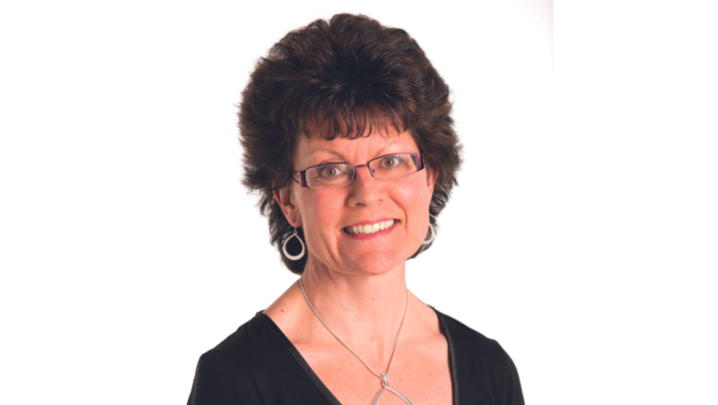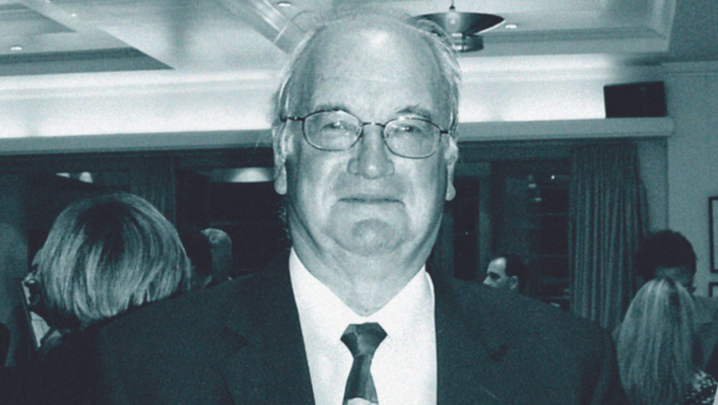Dr Thom Petty ensured that ITV Covid drama Breathtaking was clinically and culturally accurate in its depiction of the health service during the pandemic. The NHS anaesthetist is also something of a Renaissance man – an actor, composer, director and writer in TV, film and theatre.
You were the lead medical advisor on Breathtaking. How did that come about?
I know Prasanna Puwanarajah, a former doctor, and had a little bit of input, along with a few other doctors, into the script he wrote with Dr Rachel Clarke and Jed Mercurio. The production felt they needed somebody on the ground as a medical advisor and I was available.
What did the job involve in pre-production?
The other medical advisor, Dr Andrew Cinnamond, and I designed a two-day boot camp for the actors and support- ing artists with the brief of getting the medical sequences right, some of which were really complicated. But I was always conscious that we needed to do a lot more than that – we also wanted to embed the NHS culture and communication style that health workers have into the cast and extras before they picked up their stethoscopes.
... And on set?
We were involved with everything from setting up the medical sequences to making sure the set designs and costumes were correct. Joanne Froggatt, who played the main role of Dr Abbey Henderson, was an absolute sponge in terms of the way she approached the role, asking end- less questions – it was brilliant to work with her.
... And in post-production?
On set, we’d have to think of ways around showing real medical procedures such as putting breathing tubes down throats – you can’t ask actors to do that. We devised some cheats and then an amazing visual effects team made it look absolutely brilliant in post-production.
Does it matter that TV drama gets medical procedures and details correct?
Rachel, Jed and Prasanna were adamant that Breathtaking had to be authentic and that everyone on the production was on the same page. We had to get the procedures right because the moment we didn’t, people would say: “They wouldn’t do that.” Some medical dramas have a slightly different task; Casualty, for example, takes the viewer on a longer journey over weekly episodes and develops characters, as well as dealing with medical themes.
Did the actors like having an expert on set?
I was very conscious that my role was that of a medical advisor; I am also a director and have acted in television. But there is a grey area – giving a medical note can appear similar to offering an acting note, which we didn’t want to do and tread on the actors’ or the director’s toes. I would say: “In a medical sense, these are the sorts of things you might want to think about in this conversation and this is how it might play out in a clinical situation.”
Is it hard for actors to play medical roles?
The first week was challenging. We were straight into some complicated resuscitation and A&E scenes, but people warmed up as we went on. That’s a brilliant thing about actors – they are used to spinning all these plates, adapting on the fly and absorbing stuff.
Did it help, knowing how TV works?
It was a real advantage knowing my way around a TV set and people’s roles, and hopefully they could sense that I had an understanding of what they needed beyond the purely medical.
I also played Dr Neil Westland in episode one and it was really helpful to immerse myself in the set so that I knew what the sensation was like for the rest of the cast.
How have NHS staff responded to Breathtaking?
I was a bit nervous about their response but it’s been really good. As well as the medical procedures, it was important to represent the experiences of NHS staff during the pandemic. It’s been heartening to hear people say that it looked and sounded like their workplace. If you’re not faithful to what people in the NHS went through and their experiences, then there’s a risk that you diminish it.
What are your favourite TV medical dramas?
I loved Jed’s early-2000s BBC series Bodies and, most of all, ER. There have also been high-quality, day-in-the-life medical documentaries such as Channel 4’s 24 Hours in A&E and the BBC’s Hospital.
Why did you leave medicine to go to the London Academy of Music and Dramatic Art (Lamda) and train as an actor?
Medics generally have quite a few other interests outside medicine. There is a danger zone, which I entered when I was approaching 30 – I’d done a lot of medicine and not much else.
And you still work as a doctor part-time?
I’m an anaesthetist in the NHS, filling in at a hospital when they’re short. I stepped up during the pandemic and worked full time in anaesthetics and intensive care, but now I’m part time again.
The balance for me is great – I’m still a part of the day-to-day fabric of the NHS, but I’m able to do other things as well.
I enjoy being a doctor a lot more now that I don’t do it full time.
You are a bit of a Renaissance man, you act, write, direct in TV and film...
After I trained as an actor, I worked in TV, film and radio but, over the last three or four years, I’ve moved into writing and directing more.
My short film with the BFI, Ticker, is on Channel 4 and doing the film festival circuit at the moment. I’m now working with a producer on another
short and a first feature; just chipping away – it’s a long slog.
... And compose?
That was the first creative thing I did. I went to the Junior Royal Northern College of Music school, alongside normal school, which was fantastic. I was part of BBC Young Musician and thought I was going to be a composer.
I guess that’s when I first thought medicine was grabbing too much of my time, which later led to me going to Lamda.
I did compose the music for Ticker, although it’s light touch.
Where do your ultimate ambitions lie?
For me, writing and directing is the most fulfilling, and I’m very passionate about making stuff local to where I live now, which is in the Staffordshire Moorlands. It’s a place where not a lot is shot but it is a beautiful part of the world, on the edge of the Peak District. I’ve made one film here, Ticker, and I want to make more rural stories.
Thom Petty was interviewed by Matthew Bell.

